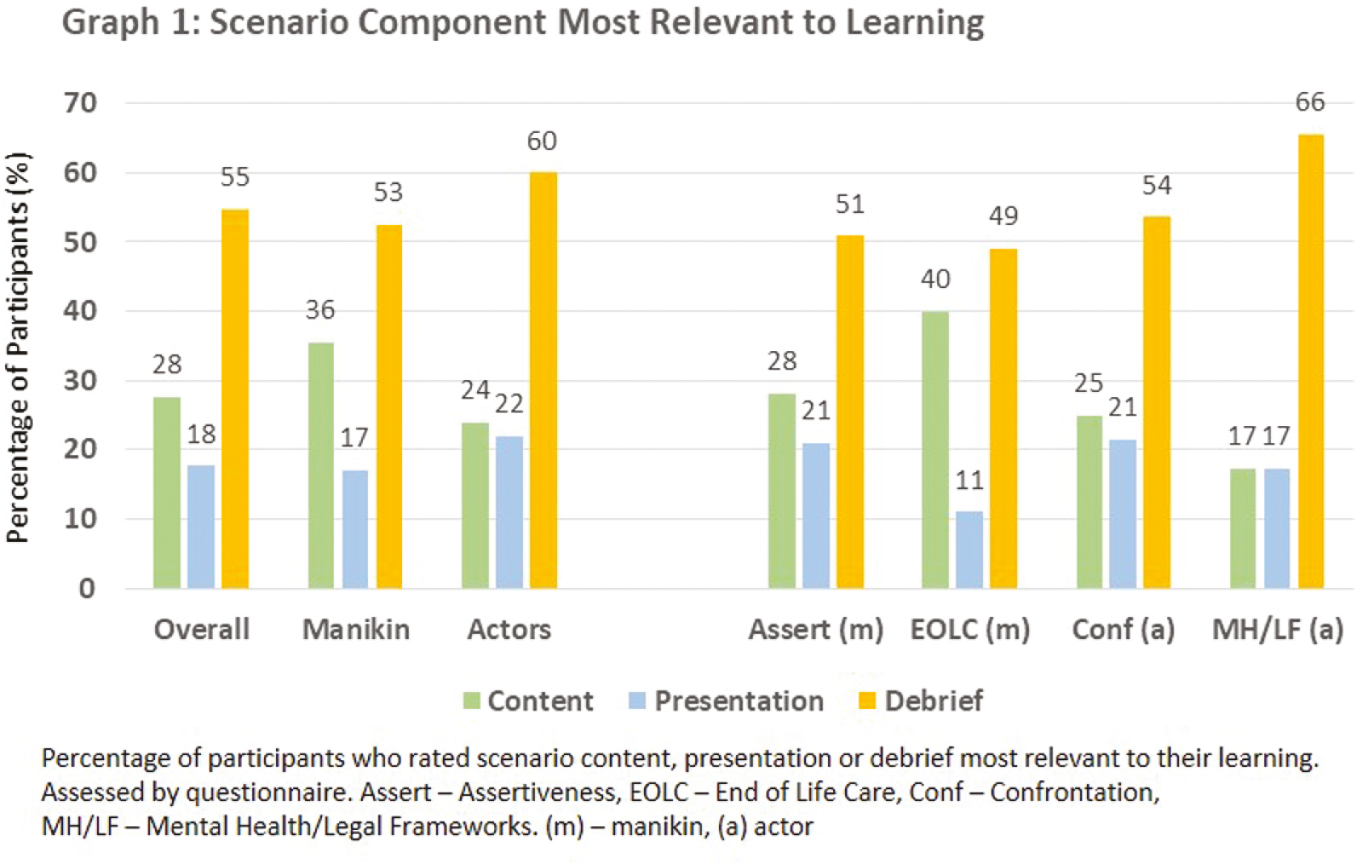
FY2 doctors in Greater Glasgow and Clyde (GGC) participate in Simulation-based learning to improve communication skills in difficult consultations. COVID-19 pandemic restrictions from 2020 – 2022, meant availability of in-person actors was limited. Two scenarios were therefore devised to run as ward-based manikin scenarios with faculty as actors, and two scenarios [1] run with professional actors. We aimed to assess the quality of each scenario to look for any differences between the manikin and actor based scenarios. The perceived importance of the debrief for learners in each scenario was also evaluated, as an effective debrief is considered necessary for successful simulation-based learning [2].
Four scenarios were chosen with intended learning objectives (ILOs) concentrating on Assertiveness and End of Life Care (manikin) and Confrontation and Mental Health/Legal Frameworks (actors). Afterwards, participants were asked to score each scenario on a Likert Scale (1 – 5) for engagement, realism and relevance to practice and also which aspect of the scenario they felt was most useful for their learning – the content, presentation or debrief. Confidence levels in dealing with the associated communication skills were assessed before and after the session.
Questionnaires were completed by 110/146 participating FY2s. Overall scores for the session scenarios were good (score 4) to very good (score 5) for engagement (mean score 4.72/5, n = 4), realism (4.76/5) and relevance (4.82/5). The manikin-based scenarios were thought to be less engaging than those with actors (mean score 4.68 v 4.77, respectively) but there was no difference in scores for realism or relevance. For all scenarios, the debrief was thought to be the most relevant part of the learning experience (Figure 1-A66): 55 % overall, 53% for manikin, 60% actors. When ranking which scenario they found most useful, actor-based scenarios were chosen by 68% of learners. The ILOs rated best-achieved by the session were “Strategies to Discuss EOLC and DNACPR decisions” (81%) and “Managing Confrontation or Anger” (79%). Confidence levels improved after the session for all topics covered (data not shown).


Manikin-based scenarios can be used to improve communication skills, with similar efficacy to scenarios using actors. However, participants in this simulation session found actor-based scenarios more useful. For all scenarios an effective debrief enhances learning. Some aspects of communication skills may be more suited for learning through manikin-based scenarios and this requires further assessment.
Authors confirm that all relevant ethical standards for research conduct and dissemination have been met. The submitting author confirms that relevant ethical approval was granted, if applicable.
1. Crichton L, Fisher L, Harrison N, Shippey B. Simulation Based Education Programme for Foundation Doctors. NHS Education for Scotland (NES); 2018.
2. Abuleba K, Auerbach M, Limaiem F. In: Debriefing Techniques Utilized in Medical Simulation. StatPearls [Internet]. Treasure Island (FL): StatPearls Publishing; 2024.